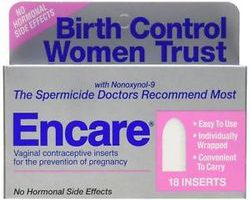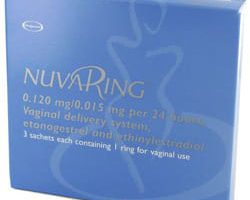Contraception or birth control is a method and means of preventing unwanted pregnancy. Birth control is not only protection against unwanted pregnancy but also means for keeping your health, as well as the ability to give birth to a healthy child at the appropriate time. In the modern interpretation, the prevention of STIs is also referred to as contraception, since some contraceptives protect not only from unwanted pregnancy but also from sexually transmitted infections.
Principles of birth control for teens
The gynecologists recommended birth control options for teens must meet the following requirements:
- high efficiency (reliability);
- availability (in stock, affordability, simplicity, and ease of use);
- health safety;
- reversibility (restoration of fertility after the option discontinuation).
When recommending birth control for teens, the doctor should consider contraindications and somatic diseases, the adolescent’s attitude to contraception, behavioral stereotypes, bad habits, life plans.
Types of birth control options for teenagers
The following types of contraception are distinguished:
- hormonal: combined oral (pills), injection, transdermal patches, vaginal rings, progestogen contraceptive pills, pills for emergency contraception;
- barrier: condoms, contraceptive sponges, diaphragms, caps;
- chemical (vaginal suppository);
- intrauterine devices: with copper, levonorgestrel;
- physiological method.
Oral contraceptives for teens
Oral contraceptives (birth control pills) are one of the most effective contraceptives in the world. However, we immediately note that oral contraceptives only protect against unwanted pregnancy but not protect against sexually transmitted infections. Despite this drawback, oral contraceptives can be used by adolescents in the following situations:
- having one persistent sexual partner and regular sex;
- allergy to latex or spermicides;
- menstrual irregularities that should be corrected with hormonal birth control options.
At the moment, there are many different forms of hormonal birth control. The most effective and safe birth control for teens is considered: microdose monophasic oral contraceptives and mini-pills.
Microdose monophasic birth control pills for teens are considered safe. In addition to a reliable contraceptive effect, they contribute to the regulation of the menstrual cycle, eliminate severe pain during menstruation, and do not lead to an increase in body weight. You can stop taking the contraceptive pill at any time.
Mini-pills contain very small doses of hormones and are considered practically harmless for teenage girls. This birth control option is slightly less effective than monophasic oral contraceptives, however, they can be used in cases when the use of monophasic contraceptives is not possible.
According to some experts, adolescents with more or less regular sex life, combinations of oral birth control with a condom are the best option. These combinations provide very reliable protection against unwanted pregnancies and sexually transmitted infections.
A transdermal patch is a thin beige or transparent adhesive based patch. It contains the same 2 hormones as the birth control pill. These hormones suppress ovulation. They also make it difficult for sperm to reach the cervical lining. In this case, it is more difficult for sperm to get to the uterus, where the egg is located. Hormones also interfere with egg implantation.
Spermicidal (chemical) birth control for teens
Spermicides (vaginal suppository) are produced with the substances that have a deteriorating effect on male sperm. This effect is achieved due to the fact chemical components that destroy the cell membrane of sperm within a few seconds. These birth control options are able to protect against some sexually transmitted infections. Spermicides are released in the form of cream, gel, foam, suppositories, tablets, dissolving films.

Encare Review
- Active Ingredient: Nonoxynol-9
- Release Form: Vaginal Suppository
- Age: 18 - 55 years
- Average Price: $200 - $220
Intrauterine birth control
The use of this method involves the introduction of various protective agents into the uterine cavity. Usually, an intrauterine device is a small, flexible plastic coil with a copper component. An intrauterine device (IUD) is inserted into the uterine cavity through the vagina. This method of contraception is quite popular among women of reproductive age, primarily among women who have given birth. The use of an IUD in nulliparous, teenagers is undesirable for the following reasons:
- a high degree of trauma;
- high risk of spread of infections and further development of inflammation of the internal genital organs;
- high risk of developing an ectopic pregnancy;
- high risk of miscarriage.

NuvaRing Review
- Active Ingredient: Ethinylestradiol / Etonogestrel
- Release Form: Vaginal Ring
- Age: 18 - 40 years
- Average Price: $165
Emergency contraception
Taking oral contraceptives with a high dose of hormones within 72 hours (3 days) after intercourse is an exceptional method of protection against pregnancy. A large dosage of hormones inflicts a severe load on the body. Therefore, this method can only be used in exceptional cases and under medical supervision. This method can be used if:
- had forced sexual intercourse or rape;
- unprotected intercourse has occurred;
- there are doubts about the effectiveness of the contraceptive method used.
Ashlyna Review
Dienogest / Estradiol Review
Slynd Review
Drospirenone Review
Norinyl 1+50 Review
LoSeasonique Review
Daysee Review
Amethia Review
Seasonique Review
Camrese Review
Rivelsa Review
Fayosim Review
Quartette Review
Lo Loestrin Fe Review
Layolis Fe Review
Jolessa Review
Xulane Review
Introvale Review
Drospirenone / Ethinyl Estradiol / Levomefolate Calcium Review
Rajani Review
Ocella Review
Seasonale Review
Tydemy Review
Safyral Review
Natazia Review
Balcoltra Review
Ashlyna Review
Dienogest / Estradiol Review
Slynd Review
Drospirenone Review
Norinyl 1+50 Review
LoSeasonique Review
Daysee Review
Amethia Review
Seasonique Review
Camrese Review
Rivelsa Review
Fayosim Review
Quartette Review
Lo Loestrin Fe Review
Layolis Fe Review
Jolessa Review
Xulane Review
Introvale Review
Drospirenone / Ethinyl Estradiol / Levomefolate Calcium Review
Rajani Review
Ocella Review
Seasonale Review
Tydemy Review
Safyral Review
Natazia Review
Balcoltra Review